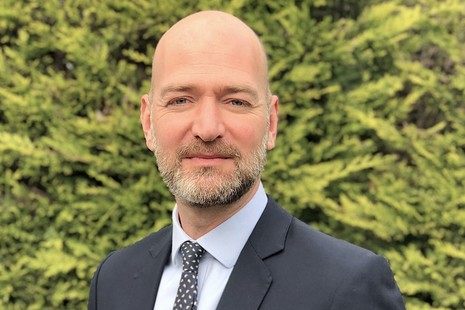By Scott Furssedonn-Wood, British high commissioner to Barbados and the Eastern Caribbean
As I arrive in Grenada to join CARICOM Heads of Government who are meeting here this week, I wanted to express, once again, the UK’s sympathy and solidarity to all those in the region whose lives and livelihoods were so cruelly affected by Hurricane Beryl. As the new UK Foreign Secretary, David Lammy, said on his first day in the job, the Caribbean is on the front line of the climate crisis, perhaps the most profound and universal source of disorder in the world today.
Arriving in Grenada, I wanted to express my sympathy to those mourning loved ones or who are having to rebuild their lives following Hurricane Beryl. As the new UK Foreign Secretary, David Lammy, said on his first day on the job, the Caribbean is on the front line of the climate crisis, perhaps the most profound challenge facing our world today.
The Foreign Secretary views the climate crisis as a top priority. One we cannot address without urgent, coordinated global action. The UK will now move faster and do more to work with our international partners to combat the impact of the climate crisis.
We did this by standing with those affected by Beryl. We have a long-standing partnership with Caribbean Disaster Emergency Management Agency (CDEMA) and supported their rapid response. We provided up to 500,000 pounds of support, providing quick emergency supplies: 800 shelter kits and solutions for over 1600 families to store fresh water, delivered within days to those made homeless by the hurricane. We worked closely with CDEMA, supporting the deployment of their emergency response teams which assisted setting up and running emergency operations centres, getting relief moving, assessing needs and sorting logistics.
But we want to do more. The UK has always been invested in helping to increase the resilience of Caribbean states. In recent years we have invested US$59 million (EC$160m) upgrading 55 vulnerable Caribbean health facilities to make them more resilient. Despite some damage, these facilities stood up well to a category 4 hurricane, servicing the healthcare needs of local populations immediately post-impact.
We have also been leading supporters of Disaster Risk Finance (DRF) mechanisms, helping to protect countries and communities against climate shocks and extreme weather. After Hurricane Ivan 20 years ago, the Caribbean led the world in establishing the Caribbean Catastrophe Risk Insurance Facility (CCRIF SPC), making insurance more cost-effective as a group (a “risk pool”).
The UK is proud to have been a founder donor to CCRIF SPC, through which Caribbean countries currently transfer US$1.3 billion (EC$3.5 billion) of risk each year to the international markets. The countries affected by Hurricane Beryl will receive over $75m (EC$200m) from CCRIF for response and recovery. Grenada, where Hurricane Beryl made landfall, will receive US$55.5 million (EC$150 million), the largest-ever payout from CCRIF.
We also provided US$25 million (EC$67.5 million) last year to set up the Caribbean Water Utilities Insurance Collective (CWUIC), which has just paid out US$2.2 million (EC$5.95 million) to National Water and Sewerage Authority in Grenada. Grenada Electricity Services also received a maximum payout to restore the electricity cable network. Grenada had led the way in the region in protecting the vital work of its utilities — the critical power, water and wastewater services that are so vital to health and dignity.
It is important that we continue to prepare and build resilience against hurricanes and other climate impacts. We must also work together internationally to secure increased quantity, quality and accessibility of climate and nature financing.
As CARICOM leaders gather this week, the region can be confident that the United Kingdom stands with you, that we understand the risks you face, and that we will work with you, and our international partners, to ensure yours is a secure and resilient future.
The opinions presented in this content belong to the author and may not necessarily reflect the perspectives or editorial stance of iWitness News. Opinion pieces can be submitted to [email protected].






